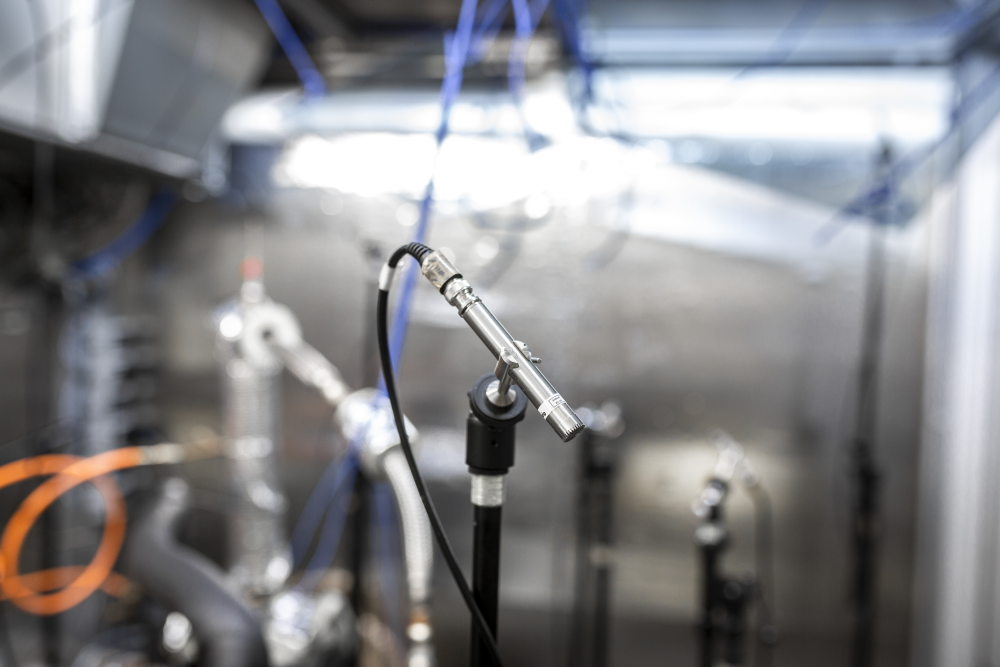| Duration: | 12/2022 - 11/2025 |
| Contracting Authority/ Sponsors: | Federal Ministry of Economic Affairs and Climate Action (BMWK), Projektträger Jülich (PtJ), Förderkennzeichen (03EN4043) |
| Project Partners: | Fraunhofer IBP, Fraunhofer IWU |
| Project Focus: |
QUEEN-HP – MENESA: Quiet Efficient Electric Natural Refrigerant Heat Pumps
Method Development for Noise Reduction for Heat Pumps by Noise Emission Analysis at Low Frequencies and Structural Dynamic Analyses (Method Project)

Heat pumps play a decisive role in the future climate-neutral heating and air conditioning of buildings. Statistically, a heat pump was installed in every second new building in Germany in 2021. In the same year, Germany recorded the operation of 1.2 million heat pumps. The majority of these heat pumps (70%) use air as a heat source. The predicted strong growth poses an increasing challenge: reducing the noise generated by heat pumps to a minimum. In order to meet this challenge, a project alliance of heat pump manufacturers, component suppliers and research institutes has joined forces to minimize the noise generated by air/water heat pumps.
In the »MENESA« project, the three research institutes Fraunhofer ISE, Fraunhofer IBP and Fraunhofer IWU are working on methods to improve heat pumps with regard to vibrations and noise. The resulting methods allow structural-dynamic and acoustic aspects to be taken into account at an early stage in the development of heat pumps, so that low-noise operation can be achieved in a real operating environment.
The project focuses on three areas:
- The structural dynamic analysis of heat pumps with investigations regarding the vibroacoustics and the transfer paths of structure-borne noise starting from the exciters compressor and fan to the sound-transmitting surfaces of the device, such as the evaporator and the housing.
- The noise effect of heat pumps on people in the vicinity of the device using psychoacoustic methods, the monitoring of heat pumps in a real structural environment and the simulation of sound propagation and sound immission.
- Elaboration of preliminary investigation and evaluation of recommended measures for noise reduction in components, devices and at the installation site of heat pumps.